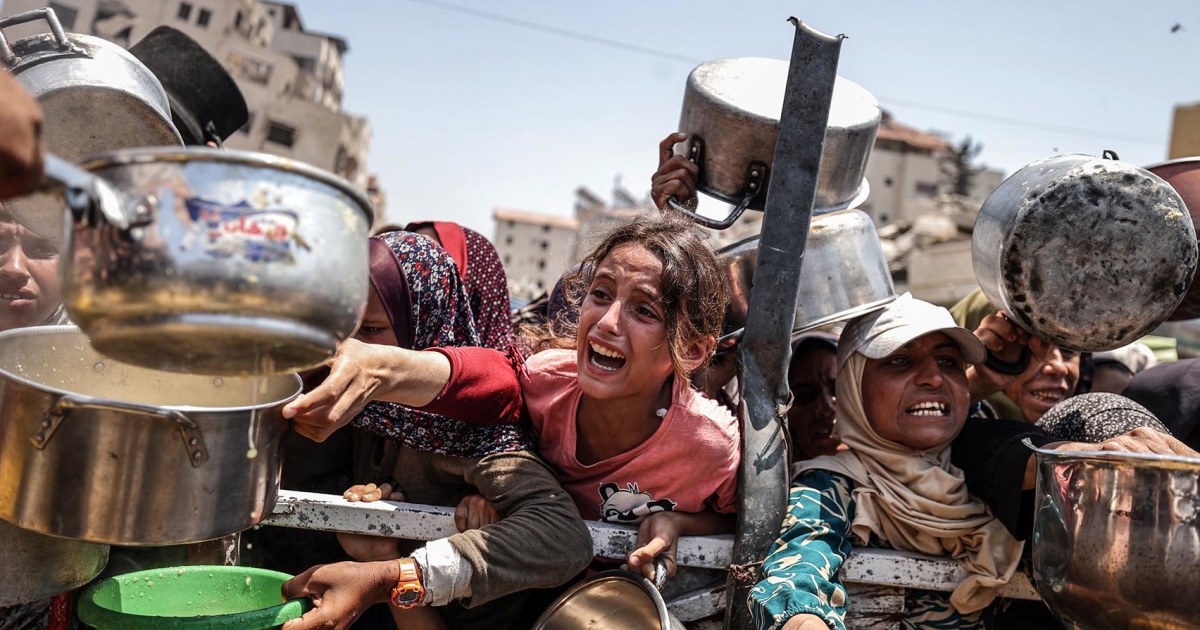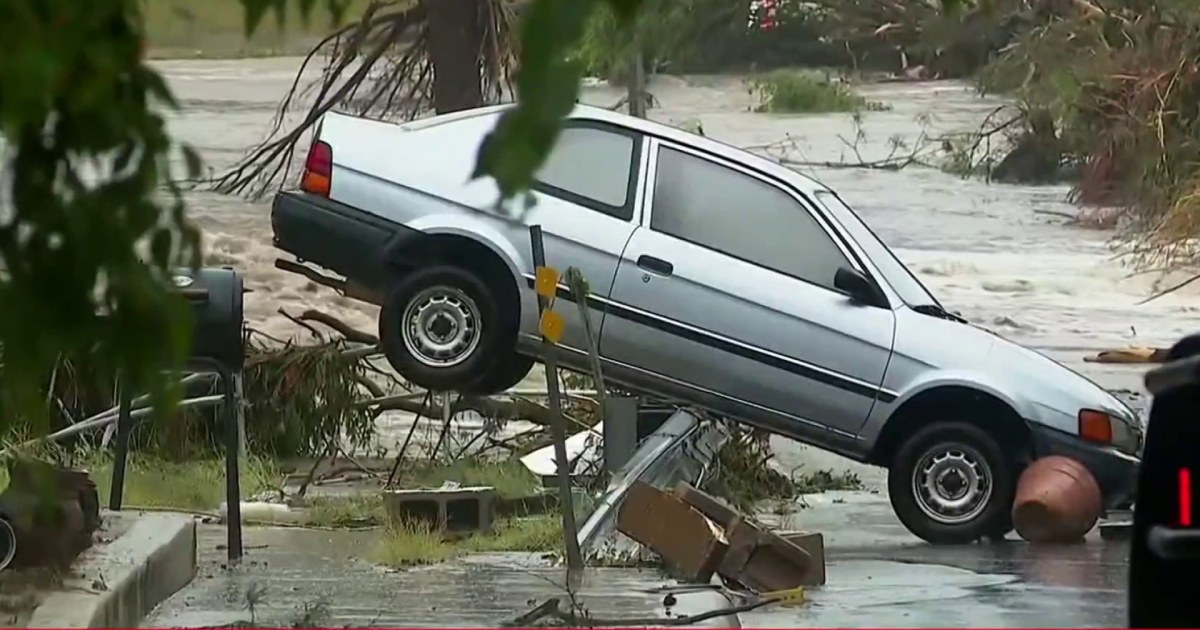The “worst-case scenario of famine” is unfolding in the Gaza Strip under Israel’s deadly offensive, the world’s leading body on hunger said Tuesday.
“Mounting evidence shows that widespread starvation, malnutrition, and disease are driving a rise in hunger-related deaths,” the Integrated Food Security Phase Classification, or IPC, said in an alert. The IPC emphasized that its warning constituted an alert and was not a formal “famine classification.”
The alert comes as deaths from starvation in the enclave continue to rise amid a spiraling hunger crisis spurred by Israel’s military offensive and crippling aid restrictions.
President Donald Trump on Monday echoed mounting global alarm at the situation, which he said amounted to “real starvation” — a break with Israeli Prime Minister Benjamin Netanyahu.
While the IPC considers itself the “primary mechanism” used by the international community to conclude whether a famine is happening or projected, it typically doesn’t make such a designation itself. But it said Tuesday that with new information made available, a new IPC analysis had to be conducted “without delay.”
The report marked the most dire warning yet from the IPC on the hunger crisis unfolding in Gaza.
“Immediate action must be taken to end the hostilities and allow for unimpeded, large-scale, life-saving humanitarian response,” the IPC said. “This is the only path to stopping further deaths and catastrophic human suffering.”
“This report does confirm what we’re seeing on the ground,” Bceki
Its findings come after weeks of warnings from humanitarian groups and health workers on the ground of starvation spreading in the enclave, with NBC News’ crew witnessing parents grieving over the bodies of their malnourished babies, and frail children clinging to life as they receive hospital care.
Global outrage has reached a crescendo over the spiraling humanitarian situation, with Israel allowing only a basic amount of aid into the enclave for weeks since lifting a crippling blockade in May that barred the entry of food and other vital supplies into the territory.
The World Food Programme warned Monday that a third of the population in the enclave was “not eating for days,” with some 470,000 people enduring “famine-like conditions” and around 90,000 women and children in need of “urgent nutrition treatment.”
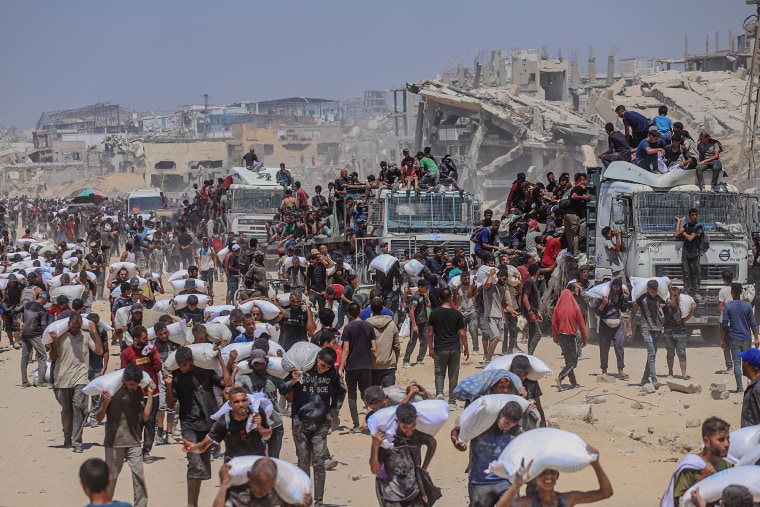
Meanwhile, more than 1,000 people have been killed in recent weeks by Israeli forces during desperate attempts to reach what limited aid is being distributed in Gaza, according to the Palestinian health ministry in the enclave, largely under a widely condemned new distribution system led by the U.S. and Israel-backed Gaza Humanitarian Foundation.
In the face of mounting condemnation, the Israeli military began limited pauses in fighting over the weekend in three populated areas of Gaza for 10 hours a day to allow the entry and distribution of aid in the enclave by humanitarian groups — but aid organizations have warned the trickle of aid allowed in so far was not enough to stave off famine in the enclave.
The health ministry in Gaza said Monday that nearly 150 people in Gaza had died from malnutrition since the war began, including at least 88 children.
The total number of people been killed in Gaza since the war began has almost reached 60,000, including thousands of children, according to the health ministry.
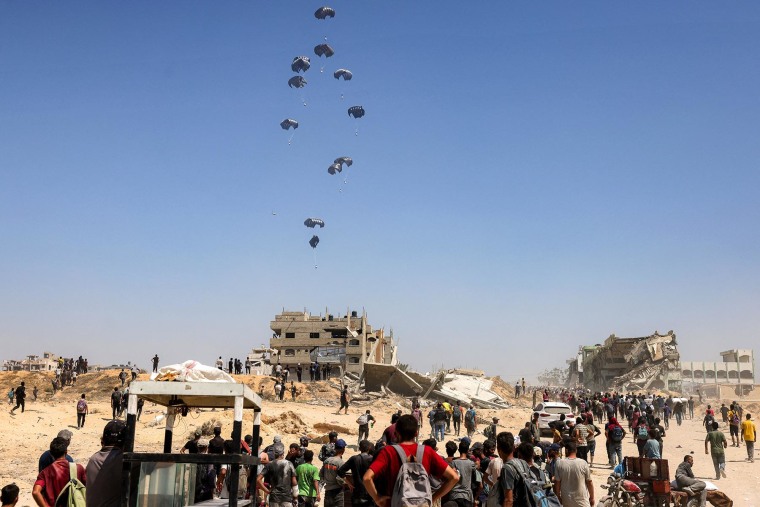
Israel launched its offensive in Gaza following the Hamas-led Oct. 7 attacks in which some 1,200 people were killed and around 250 taken hostage, marking a major escalation in a decadeslong conflict.
Since then, Israel has faced mounting allegations of genocide over its assault on Gaza, including in an ongoing case brought by South Africa before the International Court of Justice. On Monday, two prominent Israeli rights groups, B’Tselem and Physicians for Human Rights-Israel, echoed the allegation, concluding that their country was committing genocide.
Israel and the U.S. have consistently denied this.
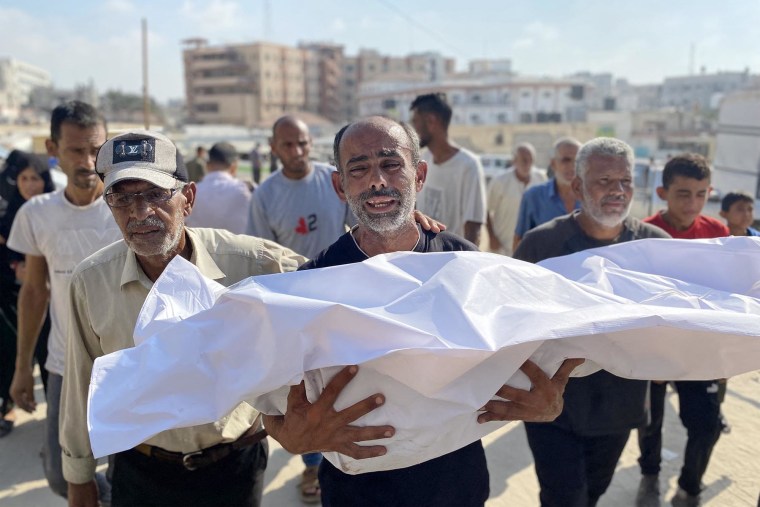
Israel has sought to justify both its aid restrictions and the introduction of a new distribution system by arguing that Hamas has been diverting aid from civilians in the enclave throughout the war. But an internal U.S. government analysis has found no evidence of systematic theft of aid supplies by Hamas, according to a report presented to State Department officials and later seen by NBC News.
The Israeli military has dismissed the report as “biased.”

